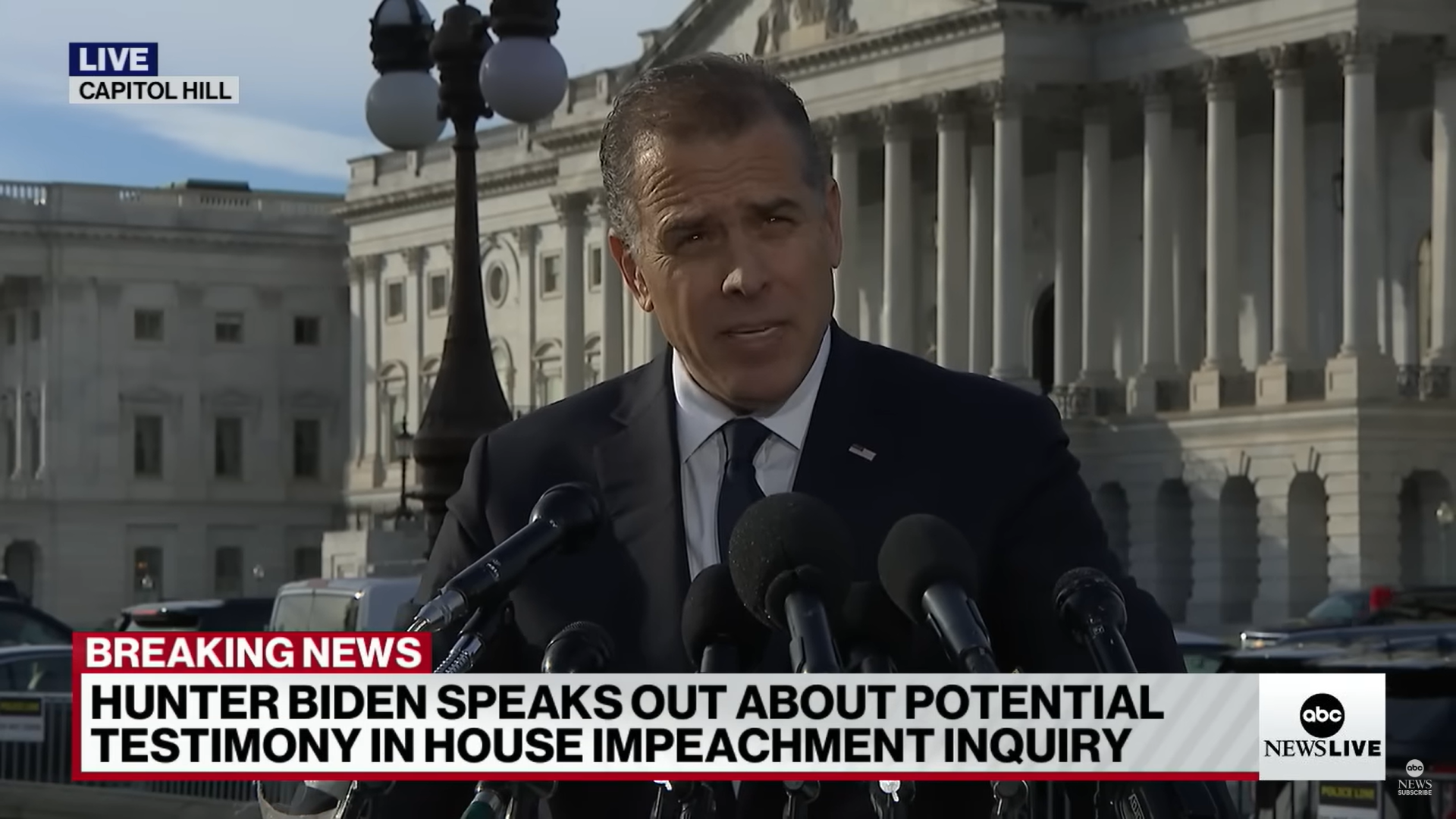


The United States attorney screening evidence related to Ukrainian corruption in the lead-up to the 2020 election did not know the FBI’s Sentinel case management system had a stealth feature to render files invisible during search queries. Nor did anyone from FBI headquarters reference the existence of such “Prohibited Access” files during discussions over access to relevant material related to Burisma and Hunter Biden. These new facts add to the growing scandal surrounding last week’s revelation that Special Counsel Robert Mueller’s team placed documents related to the Russia collusion hoax in “Prohibited Access” subfiles, preventing other FBI agents from discovering their existence.
On Wednesday, Sen. Chuck Grassley, R-Iowa, released a 43-page “Electronic Communication,” or EC, drafted by an FBI agent out of the Washington Field Office. That lengthy memo, dated September 18, 2019, detailed the agent’s need for access to material within the control of the remnants of Special Counsel Robert Mueller’s office for purposes of the Washington Field Office’s investigation into whether Nellie Ohr had lied in her congressional testimony.
While the EC catalogued the extensive evidence against Nellie Ohr, seeking to convince the post-Mueller special counsel’s office to release the additional potentially relevant evidence, the introductory discussion of the FBI’s Sentinel case management exposed two earthshattering details:
First, the EC explained the FBI’s Sentinel case management system allows investigative material to be coded “Prohibited Access,” which renders the files not merely inaccessible to other agents — but invisible to them. And second, Special Counsel Robert Mueller’s team designated the Trump/Russia-collusion investigations “Prohibited Access” in Sentinel, meaning any agents running keyword search in Sentinel would wrongly believe there were no responsive documents.
Yesterday morning The Federalist broke the further news that several U.S. attorneys were unaware of the “Prohibited Access” functionality. By midday, The Federalist learned “that senior officials did not know the FBI case management database, Sentinel, allowed agents to conceal the existence of evidence,” and that no one “from Special Counsel Robert Mueller’s office mention that documents related to the investigation into the Trump campaign had been rendered invisible by use of the ‘Prohibited Access’ coding in Sentinel — even though they knew the Department of Justice was investigating the origins and handling of the Crossfire Hurricane investigation.”
Now, another former U.S. attorney is speaking out about the growing scandal.
Scott Brady, who served as the U.S. Attorney for the Western District of Pennsylvania under Trump 1.0, told The Federalist he had never heard the phrase “Prohibited Access.” “’Restricted Access,’ yes, but not ‘Prohibited Access.'” And just as no one from Special Counsel Mueller’s team mentioned the “Prohibited Access” functionality of Sentinel to the DOJ team investigating the origins of Crossfire Hurricane and the FBI’s fraudulent targeting of the Trump campaign, Brady told The Federalist that no one from FBI Headquarters revealed the potential existence of “Prohibited Access” documents.
This fact proves hugely significant because former Attorney General William Barr had tasked Brady with vetting information related to Ukraine corruption, including evidence that implicated the Biden family in a pay-to-play scandal.
As part of the screening process, Brady worked with the Pittsburgh FBI office, as well as FBI headquarters — although FBI headquarters required the local FBI agents to obtain their approval before undertaking any investigative steps. Among other things, Brady asked the FBI agents to run keywords through Sentinel to locate information within the FBI’s holdings that would help the now-former U.S. attorney assess whether the evidence about Ukraine corruption held an indicia of reliability. The search terms would have included words related to the evidence of Ukrainian corruption being vetted, such as queries including “Burisma” or “Zlochevsky,” Brady told The Federalist. (Zlochevsky being the name of the founder of the Ukrainian oil and gas giant that paid Hunter Biden a seven-figure salary for serving on its board.)
According to Brady, agents in both the Pittsburgh FBI office and FBI Headquarters ran the Sentinel searches and then provided him with the results. Brady told The Federalist that the Sentinel search results that were shared with him revealed no hits related to the Hunter Biden laptop or material found on the laptop. In fact, Brady did not even learn of the existence of the laptop until the New York Post broke the story in October — after Brady’s team had concluded its investigation.
In contrast, the Sentinel search results included several hits classified as “Restricted Access.” And, according to Brady, he spent a lot of time negotiating with FBI headquarters to obtain access to the “Restricted Access” documents. But not once did anyone from FBI Headquarters suggest to him that other documents might not appear in the Sentinel searches because they were coded “Prohibited Access,” Brady added.
Whether FBI headquarters hid reports on the Hunter Biden laptop, or other documents relevant to Brady’s vetting of evidence of the Biden family and Ukrainian corruption, behind the “Prohibited Access” coding is unknown. It does appear, though, that FBI headquarters had that ability, as an inspector general’s report on the Sentinel case management system explained that “[t]he Sentinel system requirements stipulate that Sentinel will provide the capability to control access based upon user roles, in addition to allowing FBI leadership at FBI headquarters and in the field to define user roles and responsibilities to fit their records management operating procedures.”
Given that Special Counsel Robert Mueller’s team secreted evidence in Sentinel by using the “Prohibited Access” coding, it wouldn’t be surprising to learn that FBI headquarters followed a similar tack to protect the Biden family. In fact, given the lengths FBI headquarters went to interfering in the investigation of Hunter Biden, as detailed by the IRS whistleblowers, if anything, it would be shocking if FBI headquarters’ didn’t bury evidence about Ukrainian corruption in “Prohibited Access” files.
Unfortunately, it will likely be some time before the country knows how widespread the FBI’s use of “Prohibited Access” was, and how many investigations it potentially impacted.
